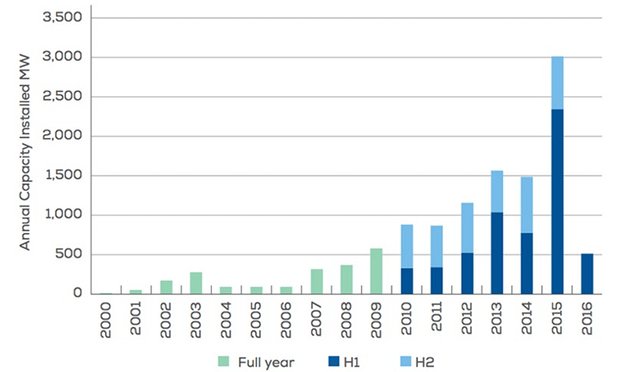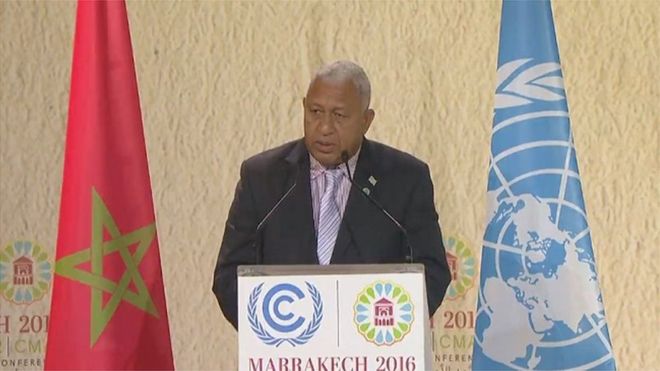Offshore wind power is getting cheaper. The change is happening dramatically quickly. In July I blogged about the falling cost and mentioned the developer Dong getting prices down to 72.70 Euros per MWh for the 760MW Borssele wind farm off the Dutch coast, which was a new world record for cheap offshore wind power. Now, less than 5 months later, the Swedish developer Vattenfall has won the contract to build the 600 MW Krieger Flak windfarm in Danish water just south of Copenhagen with a price of just 49.50 Euros per MWh (or £43.00 per MWh, which, incidentally, is less than half the cost of what the British government has agreed to pay for electricity from Hinkley C nuclear power station). Further price reductions are forecast over coming months as developers continually improve all stages of the construction of offshore windfarms.
Kriegers Flak is interesting for a number of reasons. The initial plan is to build a 600MW windfarm in Danish waters with High Voltage Direct Current connections to the Swedish and German grids, as well as to the Danish grid. This will mean that the electricity generated at Kriegers Flak can be sold into the grids of any of the three countries, wherever has the highest spot market price, and used to smooth fluctuations in supply and demand across the region. Completion of this first 600 MW project is expected between 2018 and 2020. Sweden & Germany both have territorial waters adjacent to the Danish Kriegers Flak, and both have earmarked this area for windfarm development, with a likely total of 1600 MW capacity. This tri-national project, with its super-grid level of interconnections, should help reduce the price of electricity in the three countries, and help them all reduce their carbon emissions.
Many people believe that an economy predominantly powered by the wind is impossible, arguing that when the wind stops blowing the lights will go out. Denmark is proving that argument wrong. Already in windy weather they can produce more than 100% of their electrical demand, and as they continue to build bigger and cheaper offshore wind farms like Kriegers Flak it is probable that in windy weather they’ll be generating two or three times their total electricity demand. A great number of energy storage technologies, smart grid and super grid developments mean that they’ll be able to make good use of all this surplus energy and much of it will then be available for when the wind isn’t blowing. This of course adds to the cost, but in all these sectors prices are coming down rapidly as technology improves. The Danish grid is one of the most reliable in the world despite being more dependent on wind power than any other country in the world. By 2035 they expect their electricity and heating sectors to be 100% renewable and for their entire economy to be 100% renewable by 2050. On current progress I think they may well achieve these goals early. Welcome to the new world of a wind powered economy.
There is a very good report by the European Wind Energy Association here



